- Home
- Joseph Bruchac
Peacemaker Page 10
Peacemaker Read online
Page 10
Suddenly the idea of peace actually being accepted for his Onondaga people no longer seemed to Okwaho like a wishful dream. Even with all of his warriors, Atatarho would be far outnumbered.
chapter seventeen
COMBING ATATARHO’S HAIR
The canoes did not land where Atatarho and his warriors were waiting on the shore. That was a good decision. Before they landed, he might have given the order to shoot arrows at them. Instead, the great flotilla came straight into the cove, with its wide shoreline, where the people of Okwaho’s little village waited for them.
The Peacemaker was the first to step onto the shore, lifting himself gracefully from his canoe to stand tall. There was a gentle smile on his face. Similar smiles seemed to be on all of the relaxed happy faces of the men sharing his canoe. Those men from his canoe were clearly Flint Stone People, as were those in the many canoes surrounding his. The delegations from each of the four nations were grouped together as they landed. So many, many people. Hundreds of canoes of Swampy Land men were off to Okwaho’s right. Even more Great Stone canoes were beyond them, while farthest down the beach was the equally large Standing Stone group. They were so far away that he could not make out any of their faces, even when he squinted his eyes.
Okwaho knew which nation was which from the arrangements of eagle feathers on their caps. The Senecas had one erect eagle feather on top. The Flint Stone Nation had three erect eagle feathers. The Standing Stone People two up and one down. The Swampy Land Nation wore one lying down. While Okwaho’s own Onondagas had one standing eagle feather and one eagle feather lying down.
But those Flint Nation gustowehs were different from any of the caps that Okwaho had seen the men of his Onondaga people or any other Longhouse man wear. Those fitted hats, which covered the tops of men’s heads to provide them with some protection from arrows or the blows of war clubs, were usually made from thick leather or ash splints. He could see that the caps worn by the Mohawk men probably had that same construction. But there was a difference. Instead of just having eagle feathers on top, those Flint Stone Nation gustowehs were decorated with many split turkey feathers, placed all around their cap. It fascinated Okwaho so much that he turned his attention from trying to see if a certain person might be climbing out of one of those Standing Stone canoes.
“Do you see how different our gustowehs are?” a familiar voice said from behind him. It was Carries.
“I do,” Okwaho said. “Why are there so many split feathers on them? They look like the turkey feathers we fasten to arrows.”
“Ah,” Carries said. “Your eyes are good, my young friend. That is exactly what those feathers are—split feathers from arrows.”
Carries smiled broadly in that way of his, making his facial tattoos dance. Okwaho sensed that he was waiting for him to ask more, that those split feathers were part of . . .
“A story,” Okwaho said. “There is a story about those feathers, is there not?”
“There is,” Carries replied. “As you know, an arrow without feathers cannot fly straight. A few moons ago the men of one of our Flint Stone villages were so excited when they heard the words of the Peacemaker that they decided the first thing they needed to do was to make peace with the Standing Stone village closest to them—a village that had been at war with them for as long as anyone could remember. They rushed to that village as fast as they could.
“‘We are here to make peace with you,’ they said to the village elders when they reached the town of their former enemies.
“‘If you are here to speak of peace,’ the Standing Stone elders said, ‘then why have you come here carrying weapons of war?’
“That was when our men realized they had made a mistake. In their excitement they had forgotten to leave their bows and arrows behind. But they knew what to do to prove their sincerity. They removed all of their arrows from their quivers and stripped the feathers from them. Then, as a further sign of their intent to truly make peace, they fastened their feathers onto their gustowehs. Like mine,” Carries said, placing his hand gently on the feathered side of his cap. “It has now become the custom of all our men. And I think men of our other nations will all soon be doing the same.”
“I like that story,” Okwaho said. Then he looked again toward the Peacemaker. A tall Mohawk man and a woman elder with a kind, strong face had come from two other canoes to stand by the Peacemaker’s side.
“Who are those people?”
“Who do you think they are?” Carries asked in a teasing voice.
“Hiawatha and Tsakonsase?”
Carries just smiled.
The Peacemaker looked over at Okwaho and Carries. He nodded his head and then turned to look at Hiawatha and Tsakonsase.
“Is it time?” he said in his soft voice, a voice that could not be heard from far away.
“It is time,” Tsakonsase said.
“It is time,” Hiawatha repeated.
The Peacemaker lifted his right hand, two fingers pointing upward toward the sky land. Then he dropped his palm.
Understanding his friend’s signal, Hiawatha spoke. Unlike the Peacemaker’s voice, his voice was so loud and clear that Okwaho did not doubt that everyone, even those farthest away along the shore, could hear him.
“IT IS TIME TO BRING THE PEACE TO ATATARHO.”
“YES!” the gathered people responded with one voice, so loud that it echoed back to them from the far side of the lake.
“AS WE WALK, WE SHALL SING TOGETHER. WE SHALL SING THE SONG OF PEACE TAUGHT TO THE PEACEMAKER BY A BIRD.”
Then, as Hiawatha, Tsakonsase, and the Peacemaker led them, everyone began to walk toward the place around the bend in the shore where Atatarho was waiting. And as they walked, they sang together the song that had given itself first to Okwaho and then to the Peacemaker.
AEE, AEE, YAI
AEE, AEE, YAI
It seemed to Okwaho that he could feel the song gaining power from all those hundreds and hundreds of voices joined together, voices of the people of all five of their nations. They sang to bring an end to vengeance. They sang to bring an end to grief, of mothers weeping for the loss of their children. They sang to bring an end to such loss. They sang for the innocent children and those yet to be born. They sang for those children who would grow up surrounded by love and not anger and fear. They sang for the elders who were near the end of their journeys on this earth and deserved to enjoy their last seasons in peace, surrounded by those they loved. They sang for the end of warfare, of brother killing brother. As they continued to walk and sing, the presence of peace grew stronger and stronger around them, carrying them forward.
They rounded the corner and Okwaho saw that Atatarho and his warriors were standing by his rock. None of them were moving. The presence of so many people, the sound of so many voices joined together in praise of peace, was more awe-inspiring than any weapon. The Onondaga warriors and their giant chief stood there as if they were frozen in place, unable to move as the great crowd of singing men and women and young people came closer and closer, led by Tsakonsase, Hiawatha, and the Peacemaker.
The Peacemaker raised his hand again and the people stopped walking. He lowered his hand and although the singing ended, the powerful feeling brought by that song remained. It hovered like a great eagle with its wings spread over their heads.
To Okwaho it felt as if the air were trembling around them. What was it that had descended upon them? It was as if a great wave were washing over them. But instead of drowning in that wave, they were sharing a strength, an energy unlike anything he’d ever felt before. It was not just that they outnumbered the hostile Onotakas. This sacred power that surrounded them all was so great that no one, not even Atatarho, could resist it.
The Peacemaker and his two companions walked forward until they were almost close enough to the giant warrior chief to touch him.
“We have come,
” the Peacemaker said.
Atatarho opened his mouth, but no words came out.
“We have come,” the Peacemaker repeated.
“Who are you?” Atatarho managed to say in a voice that was hoarse and uncertain. It sounded nothing like the roar of a great bear.
“You have heard of us,” the Peacemaker said.
“Yes,” Atatarho answered, his growl almost a whisper.
“We have come, all of the Five Nations brought together. We have come to form the great longhouse of one family, the longhouse of peace.” He looked toward Tsakonsase. “Here is the Mother of Nations,” the Peacemaker said. “Will you abuse her as you have abused all other women?”
Atatarho lowered his head. “I cannot,” he said, his voice even smaller than before.
The Peacemaker looked to Hiawatha, who stood by Tsakonsase.
“Hear this,” Hiawatha said. “Tsakonsase stands for the women who are the mothers of all our future generations. From this day on, she and all the women of our nations will always be respected and heard.”
Hiawatha moved to the side and Tsakonsase stepped forward. She reached out to Atatarho and took both his hands.
“I now take from you all of the aggression that you have held for so long,” Tsakonsase said.
Okwaho saw that Atatarho’s hands were trembling as she held them. The look on the giant man’s face was changing, from uncertainty to something like . . . what was it?
It’s relief, Okwaho suddenly realized, remembering how much of a burden his own anger had placed on him. Atatarho has carried his thirst for revenge for so long that being freed of its weight must be a relief.
Hiawatha came forward. He placed his hands on the huge chief’s shoulders.
“I will clear your mind from anger and violence,” he said. He reached up and began, one by one, to untie the snakes from Atatarho’s matted hair, releasing them to crawl away and disappear into cracks beneath the great stone. Then, with a bone comb that he took from a pouch at his side, he combed straight the war chief’s tangled locks.
“Now,” the Peacemaker said, “do you accept the Great Peace?”
Atatarho was standing straighter than he had ever stood before. His eyes no longer seemed dark and troubled.
“I accept it,” he said, his voice growing clearer and surer as he spoke. “I accept the Great Peace.”
chapter eighteen
OF ONE FAMILY
Okwaho listened as the Peacemaker continued to speak, his words repeated by Hiawatha in that loud clear voice everyone could hear.
It was obvious that much planning and much thought had gone into what the Peacemaker said as he laid out the plans for the future of the Great Peace. He explained how there would be fifty men, each chosen by the women of their clans, to be royaners, ones who would represent their nations in council. Those councils would always be held at Onondaga, and Atatarho himself would head those council meetings where nothing would be decided until everyone agreed, until all their minds were as one.
Atatarho, the man whose name everyone had feared, would now be the strongest defender of peace. His name would be given to his successor after his own days on earth were done. A man known as Atatarho, the Entangled One, would always head the Great League of Peace. Although he came from the Bear Clan, Atatarho’s successors would not be chosen by the Bear Clan’s clan mothers. Instead, all the Onondaga clan mothers would choose that man. Further, he and the other forty-nine royaners had to always be men of peace. If any royaner went to war, he would be stripped of his title.
One by one, other men were called forward from the five gathered nations to be royaners. Hiawatha was one of the first. His name, too, would always be passed down like that of Atatarho.
Okwaho’s heart almost burst with pride when his own father, Holds the Door Open, was called forward—as was Burnt Hair, the uncle of Tawis.
Tawis! Okwaho suddenly thought. Is he here somewhere?
He began to make his way through the crowd of happy, eager people. Almost all of them were listening intently to the Peacemaker and Hiawatha, but Okwaho could see that a group of young people near the back of the representatives of the Standing Stone Nation were sitting together under a tall pine tree on a hill near the edge of the great clearing. One of them looked familiar.
As he came closer, three men stepped in front of him.
He recognized them right away. They were the Standing Stone raiders who had tried to catch him, the ones he’d called Cold Voice, Angry Voice, and Calm Voice. And behind them, sitting on that hill under the tree, playing some kind of game with four other young people, not yet noticing his friend, was none other than Tawis.
The three big men stared down at him with serious faces. They looked dangerous and threatening, even though they were not carrying weapons. Then, to his great surprise, the three of them looked at one another and smiled. Those smiles transformed them. They no longer looked like enemies. In fact, he could see something else in their faces. Kindness.
“You are a good runner,” Cold Voice said, his voice warmer now,
“We have heard a lot about you from my new nephew,” Angry Voice said in a friendly voice that was also a bit teasing. “Almost too much!” he chuckled.
The one Okwaho had named Calm Voice nodded and then called over his shoulder.
“My son,” he called. “See who has found us.”
Tawis looked up at the sound of the man’s voice. Seeing Okwaho, he leaped to his feet.
“Skanoh, brother!” Tawis said, a wide grin on his face. “I greet you in peace.”
Okwaho wanted to grab his friend and hug him. But this was a serious gathering. The Peacemaker and his spokesman Hiawatha were still explaining the workings of the new league. They were speaking of planting a pine tree to symbolize the Great Peace, a tree under whose four white roots the war club, would be buried.
He had to behave with dignity. Tawis was now holding out his arm. Okwaho reached out to grasp it, wrist to forearm, in the old way that friends and relatives would do when meeting each other. He wanted to say something, anything. But his throat felt choked. His vision was blurred. Perhaps dust had gotten in his eyes and made them water.
But just as they were about to take each other’s arms, someone who had broken away from the crowd of Onondaga people from the big village reached them—at a dead run.
“Brothers!” Clouds Forming shouted as she hurled herself forward to grab them both—with as much force as a mountain lion leaping on a deer.
The three of them went rolling to the ground. All of them were laughing, laughing as the people around them were laughing. It was a good thing, this joyous sight of friends reunited by peace. One small sign of how the Peacemaker’s dream was coming true.
author's note
There’s no story more important to the People of the Longhouse, the Haudenosaunee (or Iroquois) Nations that that of the Peacemaker. At some point before the coming of European colonists, perhaps 1,000 years ago, the five original Longhouse Nations of the Mohawks, Oneidas, Onondagas, Cayugas and Senecas were engaged in what must have seemed like an endless cycle of bloody warfare with each other. No one was safe—not even women, children and elders. As my friend and teacher Chief Jake Tekaronianeken Swamp of the Mohawk Nation expressed it to me in an interview I did with him in 1992, “We were the worst people in the world.”
That was when a man seen as a messenger from the Creator came to preach another way, a way of unity, peace, and equality. Because his name became so sacred that it is only spoken in ceremony, he is known simply as the Peacemaker. The result of his efforts was the formation of what has been called in English the Great League or the League of the Iroquois. Admired by such Founding Fathers as Benjamin Franklin, it has been held up as one of the models for the United States Constitution and American democracy in general.
My aim in writing this novel was twofold.
First, of course, was to share with young readers a story that I feel has never been more needed in these times of conflict throughout the world. I’m trying, in a small way, to emulate Chief Swamp, who traveled all over the world during his lifetime planting symbolic trees of peace and telling the story of the Peacemaker’s journey.
Second, though I have incorporated directly into the story a number of the episodes in the Peacemaker’s quest, I wanted to personalize the story by seeing it through the eyes of a young person living in those times. Okwaho and the people closest to him are fictional, but the events that he hears about and experiences are deeply rooted in oral tradition.
As Tom Sakokwenionkwas Porter, another deeply respected Mohawk elder, told me on several occasions, there are so many stories about the Peacemaker that every story leads to another story. This novel came from the stories Tom and others have shared and continue to share with me and with the world—always hoping for peace.
acknowledgments
I’ve been fortunate enough, over the past fifty years, to hear the story of the Peacemaker directly from a great many Haudenosaunee elders. It began when I was a graduate student at Syracuse University and spending many hours on the Onondaga Reservation at the home of Alice Dewasentah Papineau, an important Onondaga Clan mother who was the first to speak with me about the Great Law of Peace. Over the following decades, aside from three years spent volunteer teaching in West Africa, I continued to meet and learn from such tradition bearers as the late Ray Tehanetorens Fadden, founder of the Six Nations Museum, Onondaga Faithkeeper Oren Lyons, the late Seneca Scholar John Mohawk, the late Onondaga Clan mother Audrey Shenandoah, and of course my friends Jake Swamp and Tom Porter. But those are only a few of the more prominent Haudenosaunee people I’ve known as friends and from whom I have learned.

 Peacemaker
Peacemaker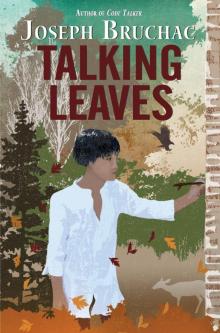 Talking Leaves
Talking Leaves Found
Found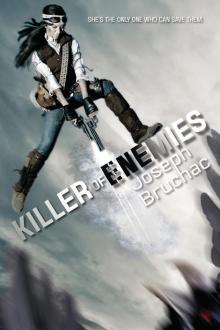 Killer of Enemies
Killer of Enemies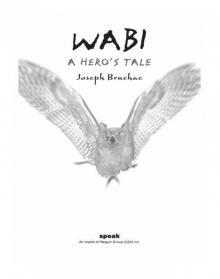 Wabi
Wabi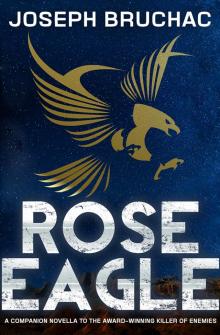 Rose Eagle
Rose Eagle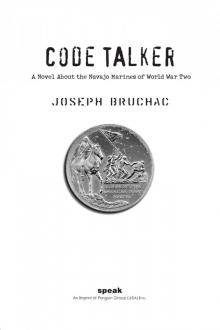 Code Talker
Code Talker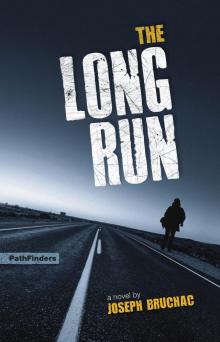 The Long Run
The Long Run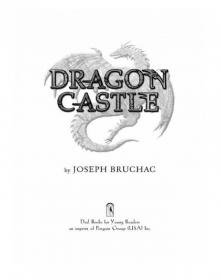 Dragon Castle
Dragon Castle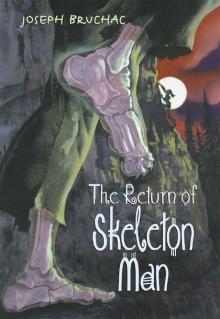 The Return of Skeleton Man
The Return of Skeleton Man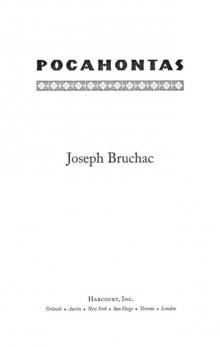 Pocahontas
Pocahontas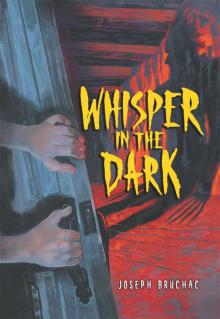 Whisper in the Dark
Whisper in the Dark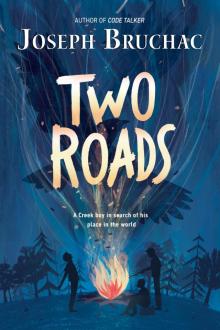 Two Roads
Two Roads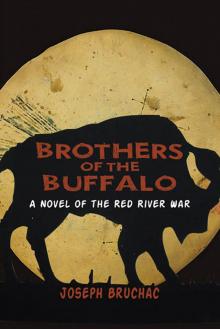 Brothers of the Buffalo
Brothers of the Buffalo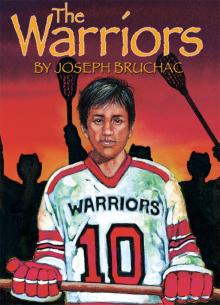 The Warriors
The Warriors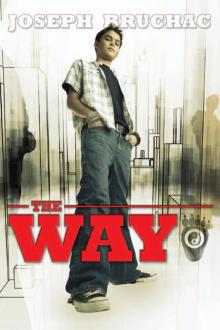 The Way
The Way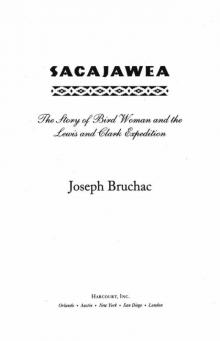 Sacajawea
Sacajawea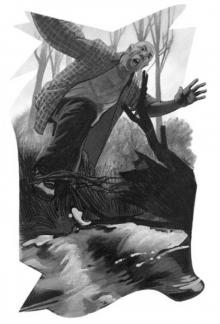 Night Wings
Night Wings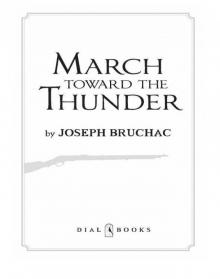 March Toward the Thunder
March Toward the Thunder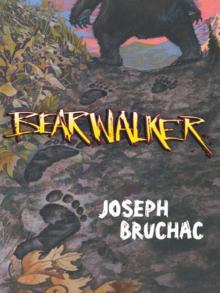 Bearwalker
Bearwalker Skeleton Man
Skeleton Man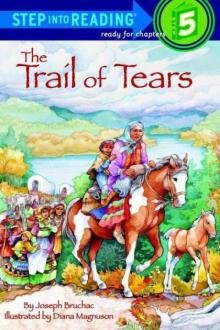 The Trail of Tears
The Trail of Tears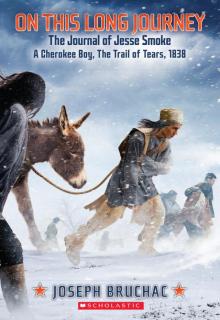 On This Long Journey
On This Long Journey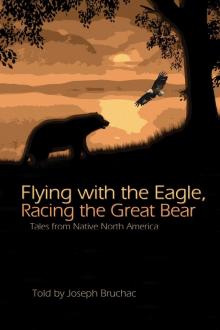 Flying with the Eagle, Racing the Great Bear
Flying with the Eagle, Racing the Great Bear